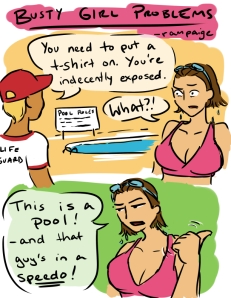If you haven’t checked out Libby Anne’s “Raised Quiverfull” project yet, you’re missing out!
Raised Quiverfull: Adult Children Respond
The project is ongoing. The Introduction, along with the sections on Living the Life, A Gendered Childhood, and Homeschooling are complete. Keep checking in for the sections on Purity, Questioning, Relating to Family, Coping and Helping Others.
Below is Libby Anne’s description of the project:
Nine young adults who were raised in families involved in the Christian Patriarchy and Quiverfull movements have come together here to answer questions about their upbringing, their questioning, and their transition to lives in the normal world. Ranging in age from their early twenties to their early thirties, all have questioned and left the Christian Patriarchy and Quiverfull movements and all but one blog against what they see as the destructive results of those movements.
These nine young adults come from an array of backgrounds (no two families in the Christian Patriarchy and Quiverfull movements are identical) and have today arrived at a variety of perspectives (while all have in some form questioned, rethought, and rejected the ideas behind the Christian Patriarchy and Quiverfull movements, their current positions on religion and family are not identical). One is male, four are students, five are parents, and two (Melissa and Sarah) are siblings.





